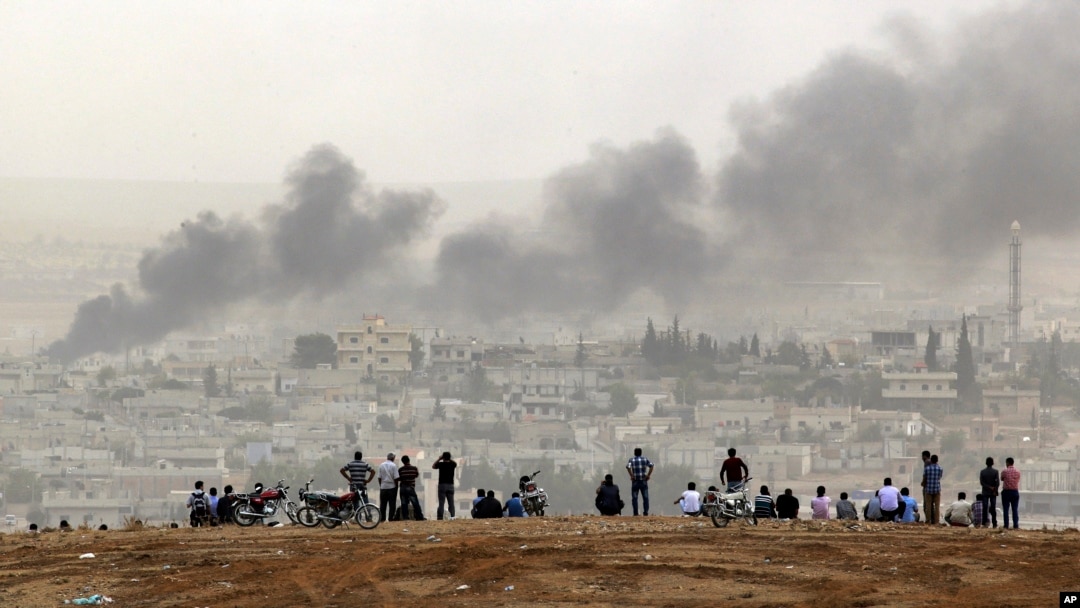Turkey is denying a U.S. statement it has agreed to allow its military bases to be used in the campaign against Islamic State militants. Turkish air bases are seen as key to the U.S.-led coalition against the jihadist group, which is expanding its reach in Syria and Iraq.
Turkish media report sources in the prime minister's office say there is no agreement with Washington for the use of Turkey's military bases by the U.S.-led coalition. But the same sources say negotiations are continuing.
The reports follow a statement Sunday by U.S. National Security Council chief Susan Rice that an agreement had been reached with Ankara over the use of its bases. The apparent breakdown in communications is an indication of how sensitive the issue is for Turkey's Islamist-rooted ruling AK party, according to Taraf newspaper diplomatic columnist Semih Idiz.
"When you act together with the United States, or West, generally speaking [there] are very touchy issues, as far as the support base of the Islamist ruling Justice and Development Party in Turkey at the moment," he said. "Especially if the joint operation is against an Islamic country or Islamic group."
The center of the dispute is Incirlik, one of the region's largest military air bases. U.S. forces have used the Turkish base since the Second World War, but analysts say its use for military operations by Washington are strictly controlled and invariably contentious. But because it is only 150 kilometers from the Syrian frontier, Milliyet newspaper diplomatic columnist Kadri Gursel says it is of crucial importance.
"It is neither easy nor economic, to strike ISIL from air bases from the Gulf or aircraft carriers, with almost eight hours of flight or two times of air refueling, just to hit one armored vehicle or even a pickup truck," he said. "A close air support, which is needed, just take the case of Kobani for example, can be offered only by using Incirlik air base."
A senior delegation of U.S. military officials is due in Turkey this week to discuss cooperation in the fight against Islamic State. Use of Incirlik is expected to be on the agenda. Ankara has agreed to train Syrian forces to fight the militants, but analyst Idiz says Washington may be disappointed on Incirlik.
"I do not think there will be direct flights from Incirlik to bomb," Idiz said. "I think the support will turn out to be more logistic in the end."
But observers say Ankara is facing mounting pressure from Western allies over the perceived lack of action by Ankara against the militants.
Criticism is growing in particular over its refusal to agree to demands from Syrian and Iraqi Kurds to allow the military resupplying of Syrian Kurdish fighters in the besieged city of Kobani on Turkey’s border.
Officials in Turkey refuse to confirm whether its airspace is used by coalition forces. Diplomatic columnist Gursel warns the decision over the use of Incirlik could have far-reaching consequences.
"The opening of the Incirlik air base to the air strikes on ISIL, is the key factor to determine whether Turkey is a full member of the coalition or not," said Gursel.
The Turkish government insists cooperation should be tied to the creation of safe haven areas in Syria protected by a no-fly zone, along with broadening the war against Islamic State to include the Syrian regime. Such demands continue to be met with a cool response from Turkey’s allies, but analysts say Ankara believes with its key bases and strategic location it has a strong bargaining position.


